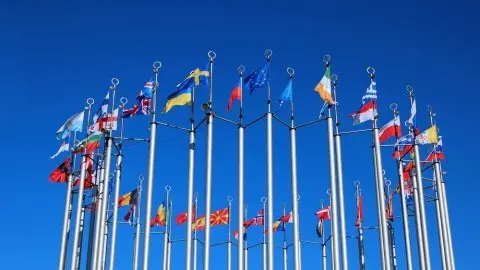What does negative oil mean for Asia?
The impact of negative oil means different things for different Asian economies - but if you have to generalise, it isn't great news
| -$37.63/bbl |
WTI oilMay contract |
| Lower than expected | |
There are some winners and some losers, but mainly losers
I've covered this subject in some detail, not that long ago, so I won't labour these points too hard today.
WTI's May contract traded at minus (yes that's right) $37 yesterday, and using some old and inappropriate yardsticks, we should all be revising our GDP forecasts higher. Right?
Wrong.
For starters, this is just the May contract, and it reflects inland storage problems in the US. More global oil indicators such as Brent or for some Asian oil importers, Dubai benchmarks, aren't trading so low - Brent is about $26 and Dubai front-month contracts closer to $21 (both positive). Our Head of Global Commodities Strategy, Warren Patterson, warns that with this May contract expiring today, we may see the June contract coming under pressure. But we'll leave the intricacies of oil price dynamics for him to cover in his team's note later.
It's also the case that whenever something like this happens, you have to ask, "Why?" Yes, there's too much oil, but more importantly, there's way too much oil for the state of collapsed US and indeed global demand we currently have. These weak prices largely reflect the shutdown of the US economy, and so we should probably be revising our forecasts lower, to reflect this, not to mention the faster decline in US drilling activity and investment that we are likely to see as a result.
Then there is the main point that I made in one of my dailies not so long ago - that much lower oil is:
- Not like a global tax cut as some often suggest;
- It isn't even really a zero-sum game as others attest;
- What it is, is a deviation from the optimal price of oil, the price at which producers and consumers are equally miserable/happy and the gains in one direction will always be less than the losses in the other direction like any other product in any other market and just as in any basic microeconomic textbook. We could be talking about jam or toothpaste...
What is a wonder is that institutions like the IMF peddled such nonsense as their ready-reckoners for oil for as long as they did.
To cut a long story short, there are some exceptions at the extremes where we can make glib generalisations - India is a big oil importer (normally) so in time, may see some benefit from much lower oil prices, and Malaysia is the region's only sizeable net oil exporter, so it doesn't help them. But for the rest of Asia, such a big negative deviation from the optimal price of oil (in the $55-65 range in recent years) describes such a big terms-of-trade shock to the oil-producing nations, that it will likely weigh heavily on their demand for Asia's exports - that is assuming the Covid -19 pandemic moves on allowing exports and production to resume. And the hit from that will be bigger than any consumption benefit derived from these lower prices.
Moreover, right now, Covid-19 remains by far the bigger story, and you could file this oil development as a sub-story under the pandemic.
The news on the pandemic itself is generally looking a bit more positive, though Russia, and many Central and South American countries sound to be making heavy weather of it. And the US new case numbers remain stubbornly high, as states like Ohio see their daily case numbers triple in about a week. It only takes one of these states to blow up and you have a new New York.
This is another reason I worry about the race to re-open. But to follow these numbers, you have to look at the state-level figures (or deeper if you can get them). Looking at aggregates for the US now was as silly as it was to look at global new case counts in mid-February, as China got on top of its outbreak, only to see figures elsewhere begin to accelerate.
This publication has been prepared by ING solely for information purposes irrespective of a particular user's means, financial situation or investment objectives. The information does not constitute investment recommendation, and nor is it investment, legal or tax advice or an offer or solicitation to purchase or sell any financial instrument. Read more
Download
Download opinion
21 April 2020
In case you missed it: First tentative steps towards normalisation This bundle contains 12 Articles